News
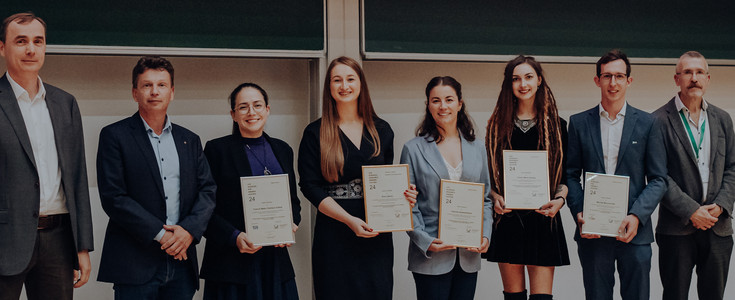
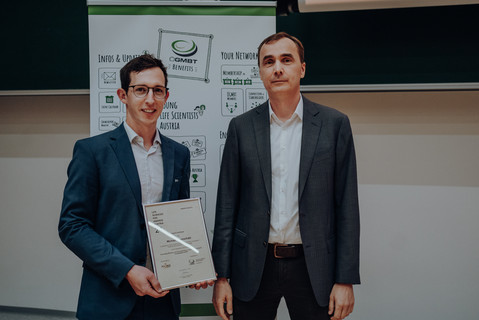
Michael Baumschabl received the OeGMBT PhD Award 2024
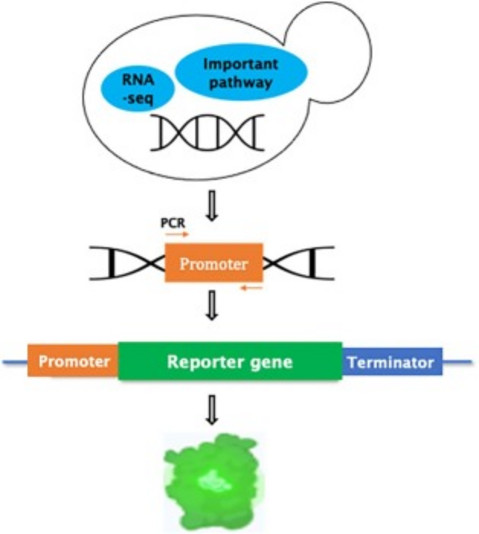
From natural to synthetic: Promoter engineering in yeast expression systems

Single carbon metabolism - A new paradigm for microbial bioprocesses?

Fermenting the future – on the benefits of a bioart collaboration

Fermenting Futures project is exhibited in “Fungi: In Art and Science” at the at the Nobel Prize Museum Stockholm
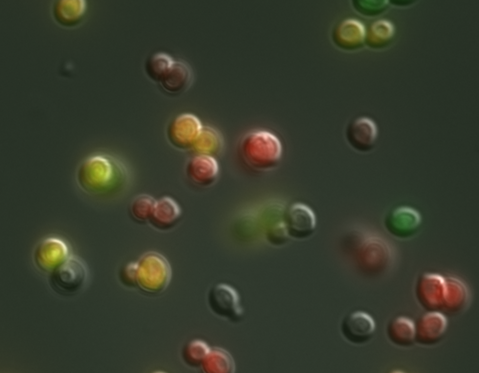
Hefe statt Rohöl – auf dem Weg zu erneuerbaren Kunststoffen
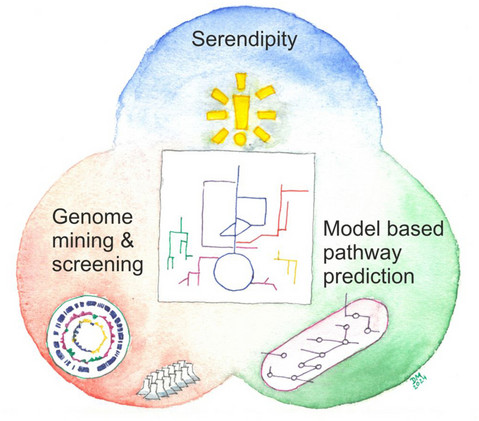
Into the metabolic wild: Unveiling hidden pathways of microbial metabolism.

Efficient production of itaconic acid from the single-carbon substrate methanol with engineered Komagataella phaffii
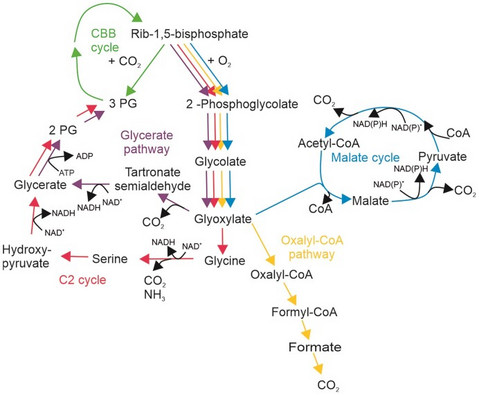
A native phosphoglycolate salvage pathway of the synthetic autotrophic yeast Komagataella phaffii
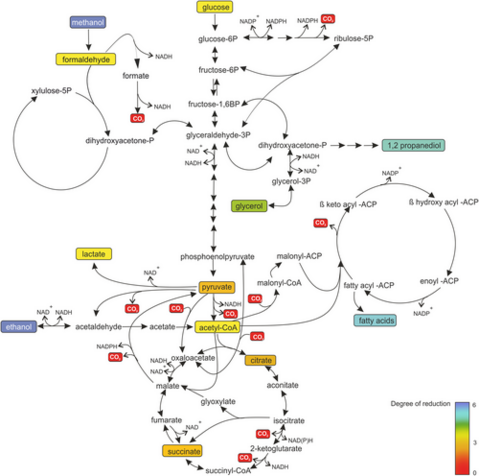
Carbon efficient production of chemicals with yeasts
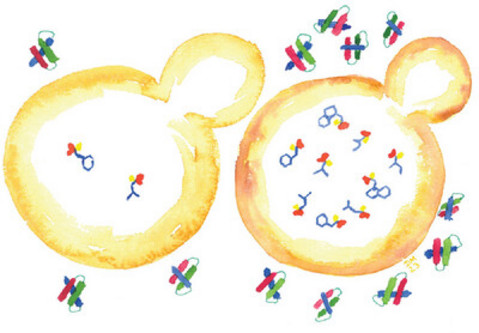
Customizing amino acid metabolism of Pichia pastoris for recombinant protein production.
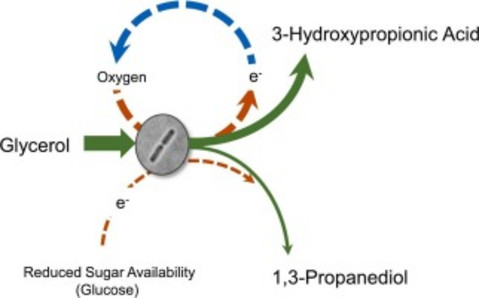
Process engineering towards an oxidative cellular state improves 3-hydroxypropionic acid production with Lentilactobacillus diolivorans.

Umschwung für die chemische Industrie: VIVALDI verwandelt CO2-Emissionen in nachhaltige Bioprodukte
Die Europäische Union hat 7 Millionen Euro für das VIVALDI-Projekt bewilligt, um die biobasierte Industrie in einen neuen, umweltfreundlicheren und wettbewerbsfähigeren Sektor zu verwandeln. Die BOKU erhielt dabei den zweitgrößten Anteil am Projektvolumen.

Overexpression of the transcriptional activators Mxr1 and Mit1 enhances lactic acid production on methanol in Komagataellaphaffii

The oxygen-tolerant reductive glycine pathway assimilates methanol, formate and CO2 in the yeast Komagataella phaffii
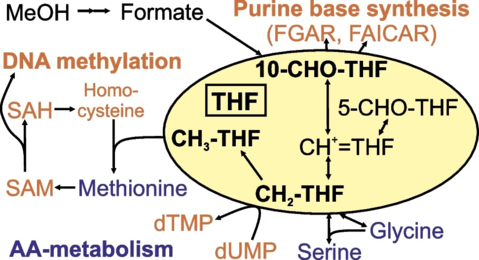
Tailored extraction and ion mobility-mass spectrometry enables isotopologue analysis of tetrahydrofolate vitamers.

From strain engineering to process development: monoclonal antibody production with an unnatural amino acid in Pichia pastoris
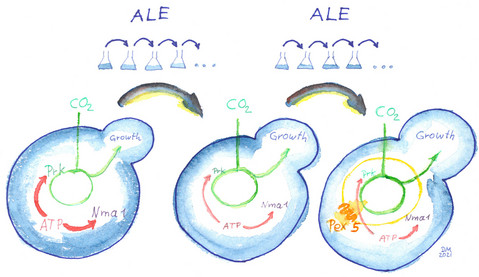
Adaptive laboratory evolution and reverse engineering enhances autotrophic growth in Pichia pastoris

Christian Doppler Laboratory for Growth-Decoupled Protein Production in Yeast
Biotechnologie - (k)ein Kinderspiel

Forschung zum Angreifen und selbst ausprobieren, das möchte das Team des Instituts für Mikrobiologie und mikrobielle Biotechnologie (IMMB) Kindern und Jugendlichen mit diesem Projekt vermitteln.
Was Hefe alles kann? 3 Experimente mit Hefe
Das Institut für Mikrobiologie und Mikrobielle Biotechnologie, Leitung Univ.-Prof. Diethard Mattanovich, an der Universität für Bodenkultur in Wien bietet drei verschiedene
Anleitungen an, um mit Hilfe von Experimenten die Lebenswelt der Hefen, ihre Beziehung zu uns Menschen, ihre Rolle in der Ernährung, der Forschung und ihre zukünftige Rolle in
der Produktion von innovativen und nachhaltigen Werkstoffen zu vermitteln.
Ein einfacher Zugang steht im Vordergrund, die benötigten Materialien bzw. Hefekulturen, können entweder selbst oder über das Institut für Mikrobiologie und Mikrobielle
Biotechnologie, der Universität für Bodenkultur in Wien, bezogen werden.
Für Rückfragen steht das Institut für Mikrobiologie und Mikrobielle Biotechnologie, der Universität für Bodenkultur in Wien, ebenfalls gerne zur Verfügung.
Die Anleitung für die Experimente findet ihr hier zum Download!
